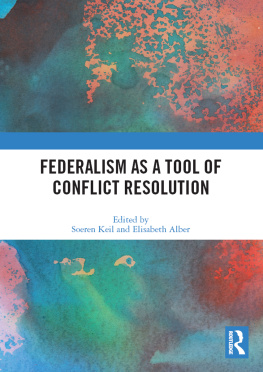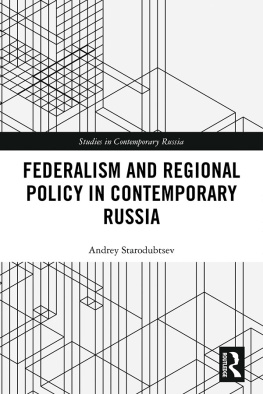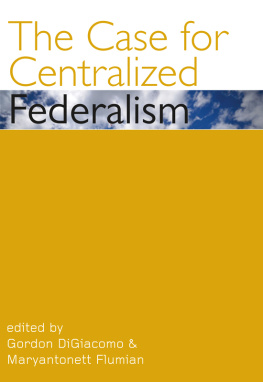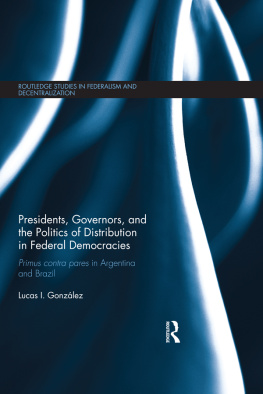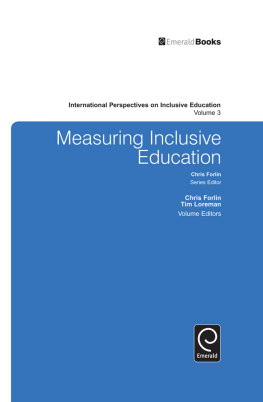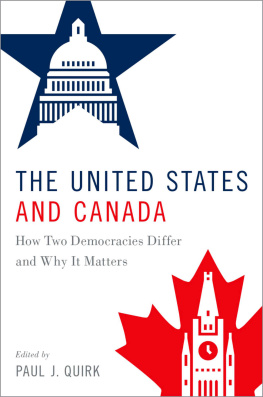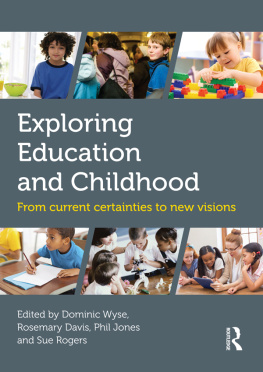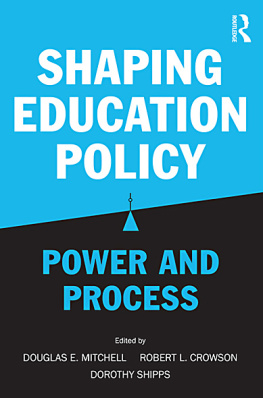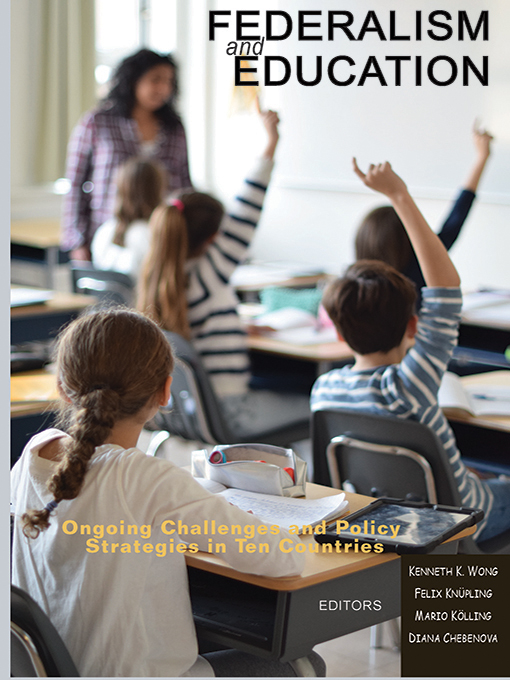Federalism and Education: Ongoing Challenges and Policy Strategies in Ten Countries
A Volume in:
Research in Educational Policy:
Local, National, and Global Perspectives
Series Editor
Kenneth K. Wong
Research in Educational Policy:
Local, National, and Global Perspectives
Series Editor
Kenneth K. Wong
Brown University
Educational Opportunity in Rural Contexts: The Politics of Place (2015)
Sheneka M. Williams & Ain A. Grooms
Charting Reform, Achieving Equity in a Diverse Nation (2013)
Gail L. Sunderman
Partnering for Progress: Boston University, the Chelsea Public Schools, and
Twenty Years of Urban Education Reform (2009)
Cara Stillings Candal
Cross-National Information and Communication Technology Policies and
Practices in Education (Revised Second Edition) (2009)
Tjeerd Plomp, Ronald E. Anderson, Nancy Law, & Andreas Quale
The Testing Gap: Scientific Trials of Test-Driven School Accountability
Systems for Excellence and Equity (2007)
Jaekyung Lee
System-Wide Efforts to Improve Student Achievement (2006)
Kenneth K. Wong & Stacey Rutledge
Cross-national Information and Communication:
Technology Policy and Practices in Education (2003)
Tjeerd Plomp, Ronald E. Anderson, Nancy Law, & Andreas Quale
Improving Results for Children and Families:
Linking Collaborative Services with School Reform Efforts (2001)
Margaret C. Wang & William Lowe Boyd
Federalism and Education: Ongoing Challenges and Policy Strategies in Ten Countries
Edited by
Kenneth K. Wong
Felix Knpling
Mario Klling
Diana Chebenova
INFORMATION AGE PUBLISHING, INC.
Charlotte, NC www.infoagepub.com
The Forum of Federations, the global network on federalism, supports better governance through learning among federal experts and practitioners. Active on six continents and supported by nine federal countries, it manages programs in established and emerging federations and publishes scholarly and educational materials.
Copyright 2018 Information Age Publishing Inc.
All rights reserved. No part of this publication may be reproduced, stored in a
retrieval system, or transmitted, in any form or by any means, electronic, mechanical, photocopying, microfilming, recording or otherwise, without written permission
from the publisher.
Printed in the United States of America
Library of Congress Cataloging-In-Publication Data
The CIP data for this book can be found on the Library of Congress website (loc.gov).
Paperback: 978-1-64113-172-8
Hardcover: 978-1-64113-173-5
E-book: 978-1-64113-174-2
Contents
. Federalism and Education: Cross-National Lessons on Governance, Standards, and Accountability for the 21st Century1
Kenneth K. Wong, Felix Knpling, Mario Klling, and Diana Chebenova
. Schooling Policy in Australia: Concurrent, Complex, and Contested19
Bronwyn Hinz
. Federalism and Education in Austria43
Peter Bujger
. The Organization of Education Policies: A Mirror of Belgian Political History and Federalism63
Peter Bursens, Petra Meier, and Peter Van Petegem
. Federalism and Education: The Canadian Case81
Jennifer Wallner
. Educational Federalism in Germany: Tensions Between the States Autonomy and Cooperative Unitarization101
Henrik Scheller
. The Italian Education System: Constitutional Design, Organization and Policy-Making131
Elisabeth Alber and Martina Trettel
. Federalism and Education: Governance, Standards, and Innovation for the 21st Century in Spain163
Mario Klling and Xavier Rambla
. The Pros and Cons of Horizontal Federalism: Primary and Secondary Education Governance in Switzerland187
Batrice Ziegler, Monika Waldis, Daniel Kbler,
Andri Gustin and Andreas Glaser
. Federalism and Education: The Case of the UK211
Deborah Wilson and Llorenc OPrey
. Public Education as a Shared State-Federal Function in the United States: Institutional Changes and Policy Challenges231
Kenneth K. Wong
v
vi CONTENTS
Chapter 1
Federalism
and Education
Cross-National Lessons on Governance, Standards, and Accountability
for the 21st Century
Kenneth K. Wong, Felix Knpling, Mario Klling, and Diana Chebenova
Introduction
Federalism matters. Federalism is formally institutionalized in approximately 25 countries, encompassing about 40 percent of the worlds population. Federalism is a system of government that divides power and functions between the central authority and its decentralized units. The distribution of power and functions is framed by a nations constitutional framework. Federalism allows for a certain degree of fiscal autonomy at the subnational level and supports electoral independence at the regional and local levels. The constitutional framework places constraints on the exercise of centralized power in education.
To be sure, political and policy tension puts ongoing pressure on federalism. In the U.S., the arrival of the Donald Trump administration has created new intergovernmental conflict. Many states and cities have declared their status as sanctuaries in defiance of federal enforcement of immigration policy. State and local leaders have indicated their commitment to the Paris Accord on meeting the international standards to temper global warming, despite President Trumps withdrawal from the agreement. When a federal commission of electoral practices requested individual voting data, states categorically refused to submit the information. Across the Atlantic Ocean, Brexit has generated new uncertainties regarding the structure of the United Kingdom, as the Scottish public pushes for independence. In Spain, the government of Catalonia promoted a referendum to gain voters support for provincial independence. But a move for provincial independence requires constitutional action by a two-thirds vote in the Spanish parliament. In other words, federalism continues to evolve.
Federalism has played a central role in charting educational progress in many countries. With an evolving balance between centralization and decentralization, federalism is designed to promote accountability standards without tempering regional and local preferences. Federalism facilitates negotiations both vertically between the central authority and local entities as well as horizontally among diverse interests. Innovative educational practices are often validated by a few local entities prior to scaling up to the national level. Because of the division of revenue sources between central authority and decentralized entities, federalism encourages a certain degree of fiscal competition at the local and regional level. In contrast to the unitary system, federalism values local and regional control of public education (Tucker, 2011). Locally elected entities govern local school systems. In other words, decentralized control places substantial constraints on the exercise of centralized power. According to some analysts, decentralization is found to have contributed to student achievement. Blchliger, Egert, and Fredriksen (2013, p. 6) showed that a 10% increase in measures of decentralization is associated with a 4-point increase in the results in the Program for International Student Assessment (PISA) for 15-year-old students.


